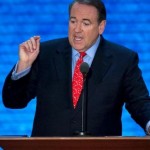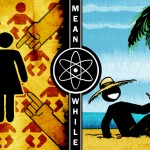Each Friday in Not Fit for Dinner, C. Ryan Knight explores political issues and the preconceptions guiding our understanding of and responses to them.
The 2012 presidential election campaign is increasing in hostility (on both ends), as many expected it would. President Barack Obama faced the prospect of potential criticism over his connection with Reverend Jeremiah Wright, who made headlines in 2008 for his “inflammatory rhetoric” and his call for God to “damn” America. The tactic was, however, rejected (fortunately).
At present, though, Obama and his staff are trying to extinguish a fiery backlash over the White House website’s newly modified President biographies. Starting with President Calvin Coolidge (1923-1929), short “Did you know?” blips were included at the end of each mini-biography. Those blips connected each President’s achievements with things Obama is trying to continue, if not take a step further.
The surge of criticism against the website modifications has not stopped. It started when Rory Cooper of the Heritage Foundation tweeted regarding the modified biographies. A new hash-tag trend, #ObamaInHistory, spread worldwide quickly. Cooper followed his tweet up with a piece titled “Morning Bell: President Me,” in which he speculates the modifications are “a glaring example of the President putting himself ahead of the sacred institution he is sworn to protect for the nation as well as his predecessors and successors.”
Other conservatives have followed suit. At The Blaze, Erica Ritz collected a sample of humorous (in an outlandish way) tweets, such as this: “In the beginning, God created the heavens and the Earth. And President Obama was there to say it was good. #obamainhistory.” Fox News suggested the “Did you knows” were an attempt “to tout an Obama administration policy or practice in the process.”
I’ll admit I don’t think the idea of adding “Did you knows” below modern presidents’ biographies was the wisest move. Critics of Obama go too far with their criticism, but the maneuver is indeed somewhat gimmicky and distasteful. Obama has been more tactful in linking himself to former presidents like Ronald Reagan in speeches and debates.
But even if the “Did you knows” were a sub-par strategy, the backlash has been exaggerated and misleading. The language and tone used in critiques creates the erroneous impression that Obama is a revisionist having a heyday photo-shopping himself into the annals of history. As White House officials have noted, the biographies themselves have not been revised. In response to the White House’s explanation, Ritz asked, “How can you add something, without altering the original?” She didn’t ask a dumb question (it was rhetorical), but she didn’t exactly ask a smart one either.
Critics of the modifications to biographies create the impression that the White House website biographies are definitive biographies. Granted, the biographies should be no means include false information about American presidents. But we should remember that these biographies are but snip-its of presidencies. They are by no means complete or thorough. If someone genuinely wants to learn about the presidency of, say, Reagan or Coolidge, that person would do well to read Lou Cannon on Reagan or Robert Sobel on Coolidge.
What seems to be missing from much of the criticism over the modifications is a proper grasp of history. It’s improper to treat something like the history of a president’s time in office as though its impact stopped when a succeeding president was sworn in. It’s well to remember that history is a continuum, and everyone lives and acts in the wake of history. We can disagree about the connections made on the President biography pages, but we we would be mistaken to think that Obama is ahistorical and is leading America in a past-less present.
Christians should reject and distance themselves from this criticism. There is a long-standing biblical tradition in which leaders and kings of the Israelites valued their history and tried to grasp how their role was in continuing the work begun by their forefathers. If Obama were to start portraying himself in messianic terms as the long-awaited President-Savior of America, there would be a problem. Such is thankfully not the case, though. Even if done in an inappropriate setting, Obama is only estimating his place among his presidential predecessors—never a bad idea.















